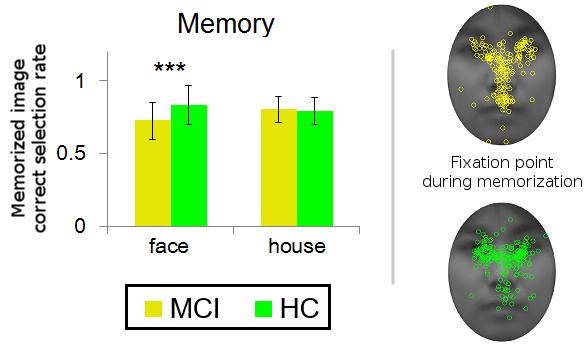
Researchers from Kumamoto University, Japan, have found that elderly people with mild cognitive impairment (MCI) have better ability to remember images of houses when compared to recognizing faces.
According to a report published in the journal Scientific Reports, the researchers studied two different groups of 18 elderly people, one group with MCI and the other with healthy elderly people.
The researchers used delayed-matching task, which assesses simultaneous visual matching ability and short-term visual recognition memory, with images of faces and houses as stimuli. The participants were asked to remember a single image out of a series of images in a block. They were made to do so with multiple blocks.
The volunteers were later asked to memorize an image from a new set of the images after a short span of time. Meanwhile, the researchers recorded the patterns of the participants gaze during the image memorization process.
It was found that the MCI patients had lesser ability to recollect the facial images than the images of houses while the healthy volunteers didn't face any comparative difference in their identification. It was found that the MCI patients' gaze concentrated on the eyes of face images, took more time to look at the mouth when compared to the good-health subjects.
It was found that the MCI patients had reduced short-term memorization ability and had different patterns for gazing at the faces when compared to the healthy volunteers.
According to reports, Emeritus Prof. Kaoru Sekiyama said, "Looking at the eyes is important for remembering the entirety of the face. MCI patients probably have an abnormality in the cognitive processing of faces due to the deterioration of brain function. It is possible that the distributed gaze pattern is compensation for this decreased function. We hope to shed some light on this possibility in future work."
Researchers had already found that the delayed- matching test would help in early detection of dementia. Early detection of cognitive diseases like Alzheimer's could help in preventing it from advancing to further stages. The memory and thinking ability of the patient could be retained through proper treatment at the preliminary stage.
Alzheimer's has been found as the most common form of dementia across the globe. Elderly people are the most affected by the disease even though middle-aged people could also be affected.








